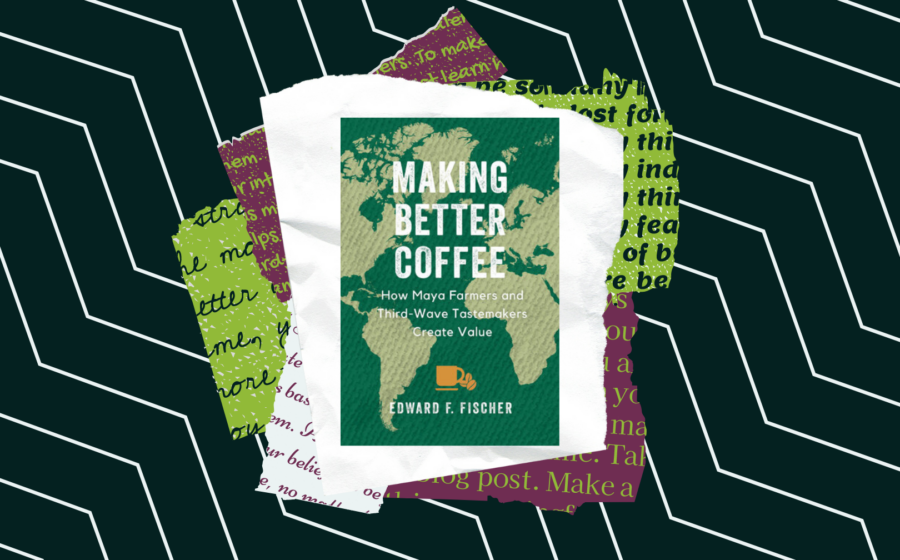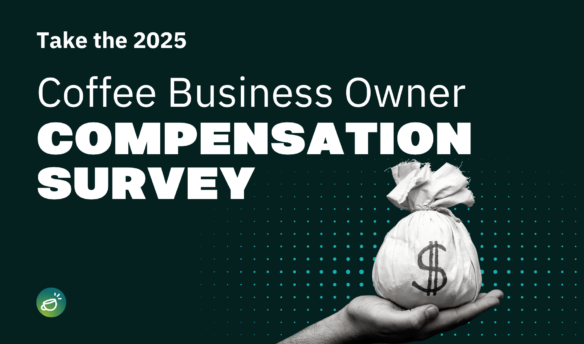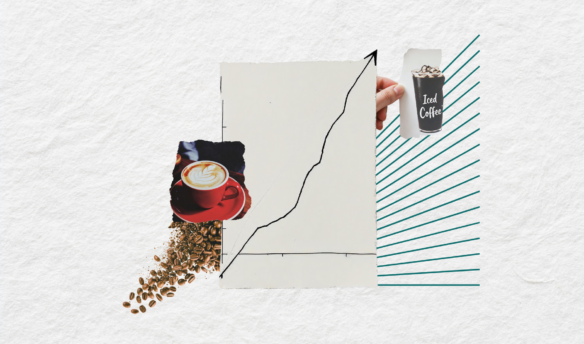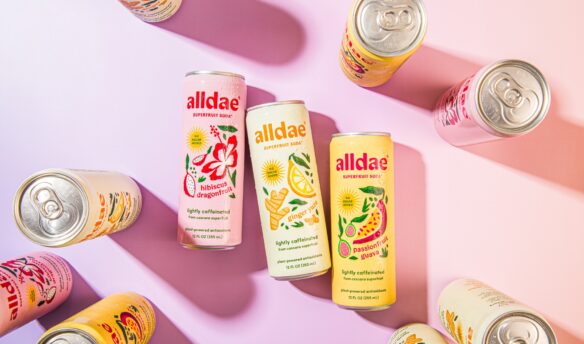The back cover copy of Edward Fischer’s book, Making Better Coffee, opens with a question probably every coffee consumer has asked: “What justifies the steep prices commanded by small-batch, high-end Third Wave coffees?”
Fischer, an anthropology professor at Vanderbilt University and head of the school’s Institute for Coffee Studies, attempts to answer that question by looking specifically at coffee farmers in Guatemala and how colonization, shifts in political and social values, and consumer trends have shaped the way we view and purchase coffee. What makes coffee valuable goes far beyond any inherent traits in the beans themselves, and Fischer’s book, which was released by the University of California Press in 2022, breaks down how we define our values—our beliefs and ideas about how the world should work—and how that translates to coffee’s economic value.
We interviewed Fischer about his book and some of the noteworthy themes and what they say about the coffee industry today:
Fresh Cup: How would you describe the book?
Fischer: This book is about coffee and how it links Guatemalan farmers, U.S. specialty roasters, and consumers. But it is also a book about values—what that coffee means to the folks who grow it, how it fits into their moral worlds, and what it means to consumers of craft coffee—and how those cultural values get converted into economic gain. I conclude that value (and quality) are not discovered out in the world but created by those of us involved with coffee (researchers, roasters, baristas, and aficionados).
As you mentioned, one of the most prominent themes is how value is created. Why is that something you wanted to explore?
I started this project to try and understand why some coffees from Guatemala were suddenly commanding eye-popping prices. In 2012, a farm called El Injerto sold a lot for $500.50 a pound, and I wanted to understand what was happening. While doing this research, I was struck by how coffee professionals and traders talked about value and quality—as if these were things existing in the world that just needed to be discovered.
But, from an anthropological perspective, value is a social construction: what we deem to have worth, to be desirable, stems from cultural conventions. That led me to the conclusion that the real power in this formation is not in controlling a particular terroir but in deciding what traits get valued.
Can you tell us a little bit about your background in Guatemala? Why was Guatemala your main focus in the book?
As an anthropologist, I have long worked in Guatemala with Maya farmers, looking at the creative ways they engage with international markets. Coffee plays a major role in Guatemala’s economy, politics, and society. And I thought I knew the story of Guatemalan coffee: run by a European-descent coffee oligarchy, plantations relied on coerced Maya labor—a poster child of neo-colonial exploitation.
But, from an anthropological perspective, value is a social construction: what we deem to have worth, to be desirable, stems from cultural conventions. That led me to the conclusion that the real power … is not in controlling a particular terroir but in deciding what traits get valued. Edward fischer
But I learned from Bill Hempstead [who comes from one of Guatemala’s noted coffee families] that the quality turn in the coffee market in the 1990s had changed the power dynamics. Coffee was now being grown at higher altitudes (or denser, more flavorful beans), meaning that production had moved up the mountains into the Maya highlands. And lots of former plantation workers started growing small plots of coffee, and many Maya communities benefitted from the economic boom of specialty coffee. There seemed to be some poetic justice in that, and I wanted to tell that story. But, like with all stories, it turned out to be more complicated.
What is the Institute for Coffee Studies? Can you tell us about your work there and how you incorporate coffee into your teaching and research?
The ICS was founded in 1999 by Vanderbilt psychiatry professor Peter Martin to encourage research into the physiological effects of coffee consumption. Major funding came from a consortium of coffee-producing countries (Brazil, Colombia, Mexico, and Guatemala), the U.S. National Coffee Association (NCA), the All Japan Coffee Association, and the International Coffee Organization. It was founded at the start of all these discoveries over the last twenty years about the beneficial health impacts of coffee.
Once that work had run its course, I took over in 2007, and with my colleague Bart Victor, we reoriented the work around economic development. We have recently run a Coffee Design Challenge with Hanes Motsinger, and I regularly teach a coffee seminar. Coffee is an excellent tool for teaching because we can show how history, economics, plant biology, cultural trends, and consumer tastes interact around this single item.
You said in a previous interview that “tastemakers talk about quality as an objective trait.” Why does this happen, and what does it obscure when we assume quality is a fixed trait?
From a marketing perspective, one almost has to talk about quality as an objective, timeless trait. Having that solidity is important to getting folks to part with their money.
But in fact, our definitions and standards of quality change over time. It wasn’t long ago that East African naturally-processed coffees were looked down upon, and now they are celebrated. Something similar may be happening now with robusta. So, our definitions of quality change over time—and the power in that formation rests mainly on the consumption side and not with producers. Talking about quality as an objective trait obscures our role.
One point you make in the book that stuck out is that markets are never free. How can we look more critically at markets, specifically market access, to understand what success has meant for the farmers who’ve garnered higher prices for their coffee?
It is a key point to remember. We created markets through our legal, financial, and social institutions. Despite rhetoric to the contrary, getting out of the way and letting markets do their work is not an option. Accepting that can empower us to make markets work better for the common good.
Smallholding farmers are generally not critical of markets—or the promise of markets—but they are frustrated that the terms of engagement seem to be set against them. For example, the Cup of Excellence (CoE) is a cool innovation that uses market forces to reward quality growers. Great idea; cool things have come of it, and several medium-sized producers and a few small producers have struck the jackpot through good CoE placements.
The smallholding Maya farmers are growing coffee that, according to blind cupping scores, should be earning $4 per pound—and these coffees were selling for $1.25. Coffee is not some pure meritocratic market: those with social capital and networks do much better. Edward fischer
But there are still barriers to entry. It is open to all, but internet access, knowledge of the program, speaking Spanish or French or English, etc. So some individual farmers do great, but many who prefer or have to sell through cooperatives are left out.
I still think about a map you showed at a coffee conference called Re:co in 2019—and you highlight it again in your book—can you describe the map of the farms in Huehuetenango and what it symbolized for you?
We found that medium-sized farms owned by European descendants and entrants in the CoE were able to get three times the value for their beans than smallholding Maya farmers in the same area whose coffees were cupping in the same range. The smallholding Maya farmers are growing coffee that, according to blind cupping scores, should be earning $4 per pound—and these coffees were selling for $1.25. Coffee is not some pure meritocratic market: those with social capital and networks do much better.
Lastly, it’s important to highlight another theme in your book: that the majority of economic value in coffee comes from translating the material quality of beans into symbolic power.
Yes, and it illustrates the power differences I mentioned above: deciding what constitutes quality is where the real economic power rests: with coffee professionals and aficionados.















